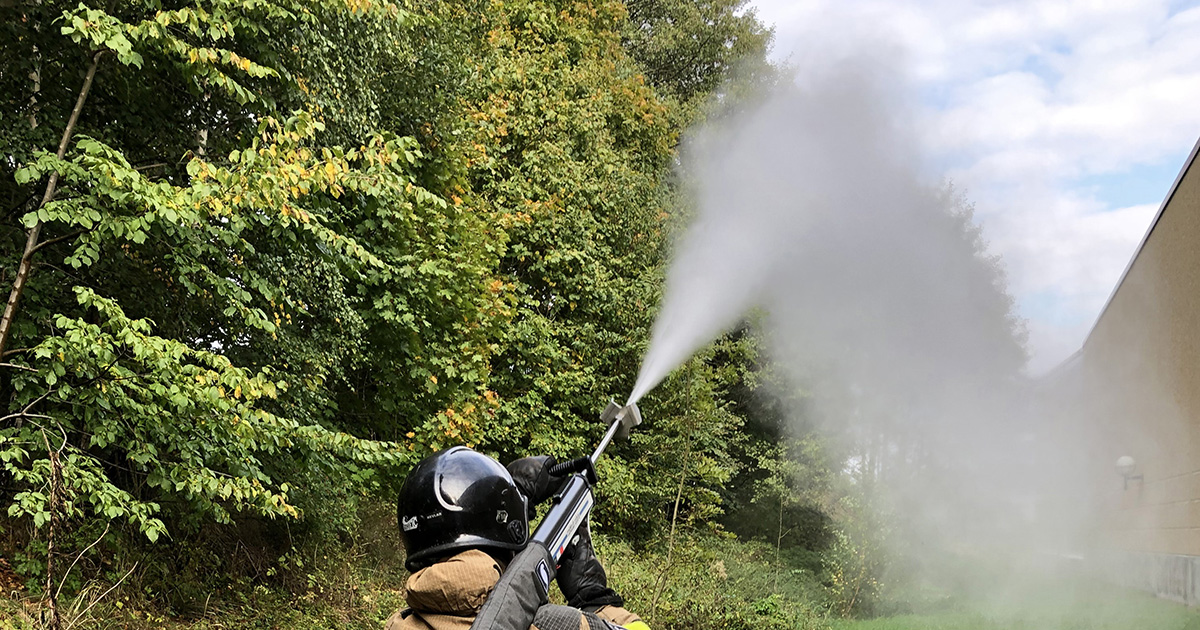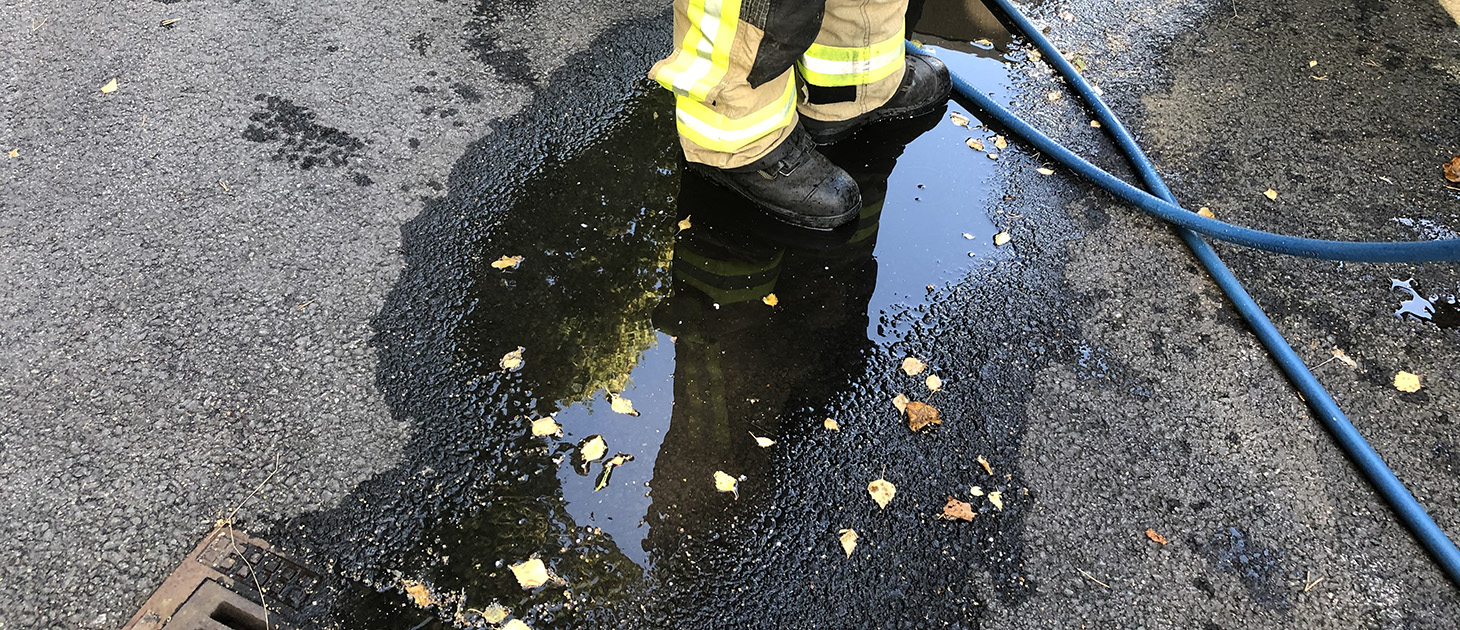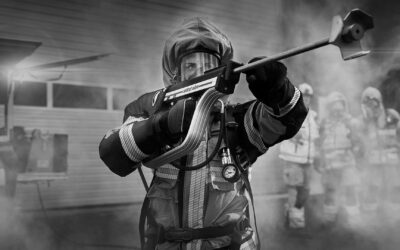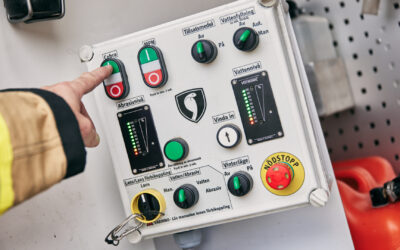But does it really work to extinguish with less water? The key is to, instead of using lots of water ineffectively, use a smaller amount of water effectively.
Droplet size and spray pattern are essential when it comes to absorbing heat. It is the surface of the water droplet that absorbs and cools the heat radiation from the fire gases. Therefore, it is of great importance to get as large an effective surface area as possible. Many small droplets together create a larger total effective spray area per litre of water.
Cobra uses a pressure of 300 bar and a flow rate of 60 l/min, which results in many small droplets in a fine water mist creating a large effective surface area. The fire gases are cooled, resulting in reduced temperature in the fire compartment.
But this effect is not the only positive thing with less water usage.

Water is often a limited supply, so to get a good effect with less water may be crucial. Since Cobra can be very effective with a much smaller amount of water, it can be an excellent tool to pick when water resources are limited.
Water damage due to firefighting is a common problem. When using Cobra, up to 90% of the water vaporizes, leaving less water to cause water damage. When using traditional methods with a lot of water, most of the water remains after the fire is put out, causing costly damages to the building.
The nature of water is also mobile, and it tends not to stay in one place; instead, the water can be absorbed into porous materials.
The water that does not evaporate during firefighting will remain or leave the fire site. This water can be more or less contaminated. Contaminated run-off water can, depending on soil conditions etc., infiltrate the soil or through surface run-off reach areas that are more or less environmentally sensitive.
This means that run-off water not only damages the materials in the room of origin of the fire but can also damage larger areas of the building or contaminate the surroundings. Run-off water contains many different contaminants in varying concentrations.
To reduce the environmental and health impact of fires, collecting and cleaning or otherwise taking care of the contaminated run-off water may be necessary. If as much water as possible is evaporated rather than being used for surface wetting, there will be less water damage and less to clean afterwards.
Contact us to learn more on this subject, or keep your eyes open for our upcoming webinar on water.



